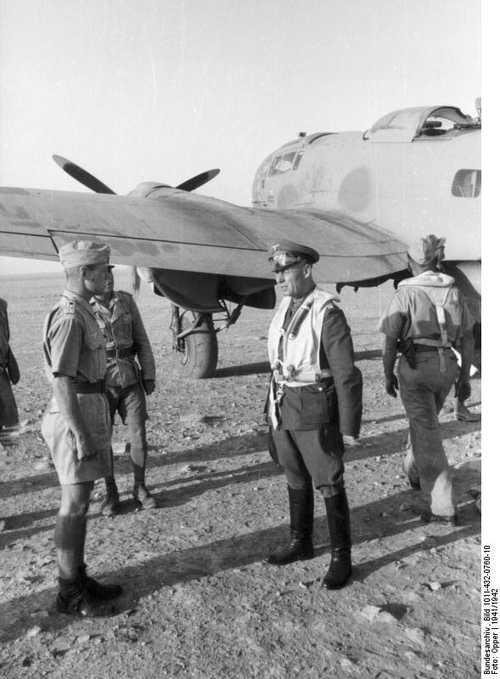Worth reading,'War without hate’from the note-books of Erwin Rommel,book from the 1950ties.
Field Marshal Erwin Rommel, who commanded the Axis forces for most of the campaign, wrote a book about his experiences there called Krieg Ohne Hass (War Without Hate). It was common practice in the North Africa campaign for machine gunners of both sides to hold their fire when enemy soldiers bailed out of shot-up tanks. Stretcher bearers were routinely permitted to dash into the open to retrieve the wounded. (Of course there were notorious exceptions; the Italians displayed the nasty habit of killing any Arabs suspected of collaborating with the British by hanging them by a hook set under their jaw.) But by and large, the troops of Archibald Wavell, Claude Auchinleck, Neil Ritchie, Bernard Montgomery, Harold Alexander, and those of Rommel and his generals behaved with remarkable restraint.
Rommel himself was one of the foremost practitioners of this knightly self-command. One famous incident reported in the British press tells of Afrika Korps troops overrunning a British field hospital in which both Axis and Allied soldiers were being cared for by the British staff, who had refused to withdraw in the face of the enemy approach but had insisted on remaining with their patients. When Rommel learned of this, he went personally to the hospital, shook the hand of every man and woman on the staff and with great emotion thanked them for their care of his men. He asked them to stay on until he could bring up his own doctors and nurses, to which the British readily agreed. Rommel deliberately did not take them prisoner (which might have set them at hazard once they were out of his direct care) but instead saw to it that they were repatriated through neutral Switzerland.
Rommel insisted that Allied prisoners receive the same rations and care that he did. Desmond Young (later a brigadier, who wrote the excellent Rommel The Desert Fox) tells the story of his own capture by the Germans. The battery that Young commanded remained unsubdued, though surrounded. An Afrika Korps officer held Young at gunpoint, demanding that Young order his men to hoist the white flag. Young told him to stuff it. The situation was getting a bit sticky, as the Brits might say, when suddenly a staff car chanced to appear, braking in a cloud of dust. Out stepped Rommel. As soon as the situation was explained to the Desert Fox, he upbraided his own officer for conduct in violation of the code of soldierly honor. The officer would have to find, Rommel declared, another way of solving the problem.
Was this sort of chivalrous conduct merely a freak of war, an anomaly? Or were there reasons why the Germans, British and Commonwealth troops behaved by and large so decently toward one another—and, if so, what were those reasons? Can we learn something from them? Are those days gone forever?
(article by Steven Pressfield)

